If you live in certain states, wine can be found at the supermarket, which helps trim a stop off your run of errands on a busy day. I mean, we’re certainly not skipping the wine, are we? Grocery store wine gets a bad rap for being generic, boring and altogether a bit basic, but that doesn’t mean there aren’t some goof bottles to be found among the hard iced teas and boozy seltzer.
To get the skinny on good grocery store vino, we turned to an expert in the field. “You can find good wine at the grocery store,” says Jade Palmer, wine manager at Hop City Craft Beer and Wine in Atlanta. “There are plenty of producers who have large production,” the kind that makes consumer-friendly pricing possible, “but their production is well done,” she says.
The key here is knowing what to look for in “over-delivery,” that is, wines that punch above their price class in terms of quality. Palmer offers several tips and tricks for finding wines at the grocery store that are more than worthy of your dinner table.
(Oh, and if you’re wondering if you should pop that open red wine in the fridge to keep it fresh, we asked an expert to weigh in.)
1. Know which wines to avoid
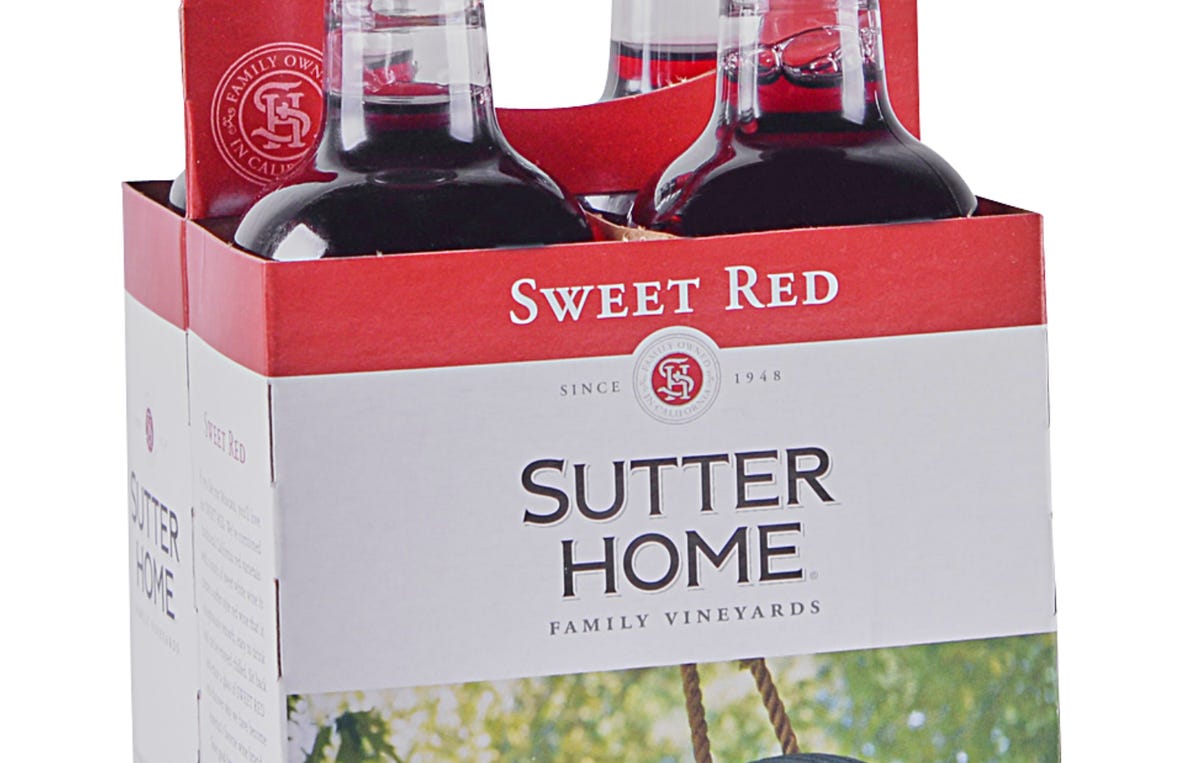
Knowing what to avoid is as important as knowing what to look for.
While grocery stores and supermarket chains typically have plenty of good wines stocked on their shelves, half the battle can be separating the wheat from the chaff (the grapes from the pits?) where wines are concerned.
Palmer suggests a few keywords to avoid when bottle shopping. “I would avoid any wine that has the word ‘sweet’ in the title,” she says, “which typically means the wine is artificially sweetened to make it more palatable.”
If you prefer a wine with a little sweetness to it, look for the words “off-dry” instead, which better reveals a classically made wine that intentionally has a little residual sugar left following fermentation.
Also, wines with other “natural flavors” or those that have been bourbon-barrel aged are sometimes just tricks that mask the wine’s honest flavor. “That’s why we drink wine,” says Palmer, “because we want to taste the flavor of the grapes.” (Leave the bourbon barrels for the bourbon.)
2. Skip the mass-market brands
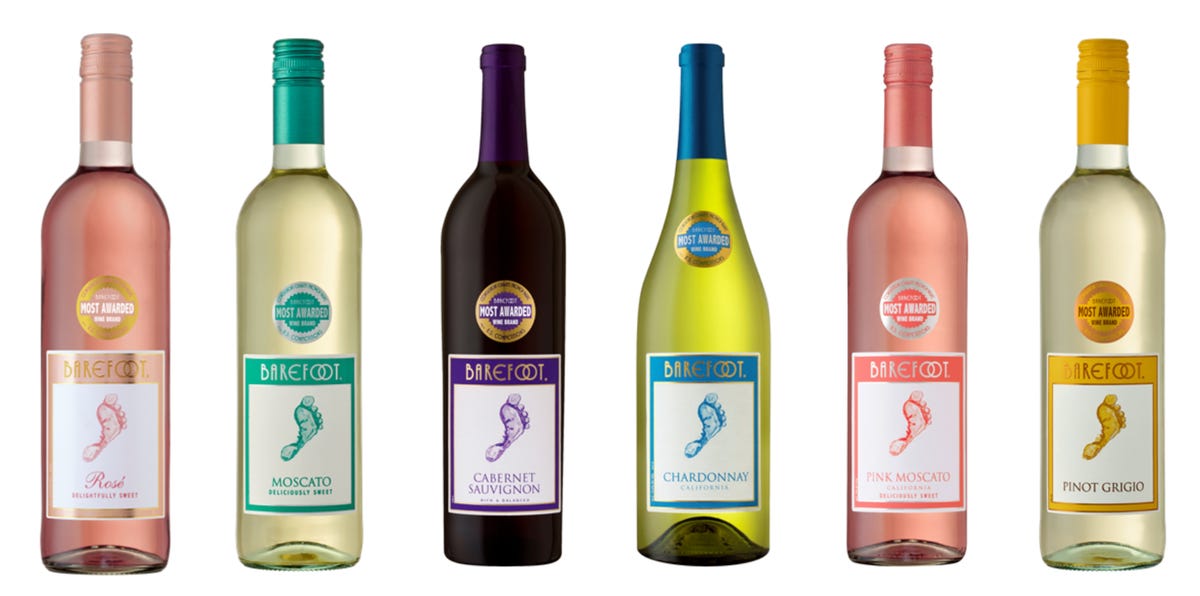
Brands with big marketing budgets tend to put their money there rather than in winemaking.
Sorry, Barefoot, Yellowtail and, yes, even Josh. They may claim the most shelf space in grocery retailers, but you’re going to want to dig deeper for better wines. “The production on those has gotten so big that I don’t think that the quality is there,” says Palmer. “I understand the price point is attractive, but when we’re looking for value wine, we’re also looking for quality, too,” she says. In general, be dubious of any wine that has been excessively marketed to you. (Throwing Whispering Angel under the bus here, too, while we’re at it.)
Read more: Budget Bottles: An Expert Reveals How to Find the Best Value Wine
Brands that have big marketing budgets tend to put their money there rather than in winemaking. Here’s where you’re likely to find wines with a pronounced oak flavor that comes not from oak aging, but from oak chips stirred into the wine to shortcut the process. (Yes, that’s a thing.)
3. Certain regions are known for value: Portugal, Chile, Washington
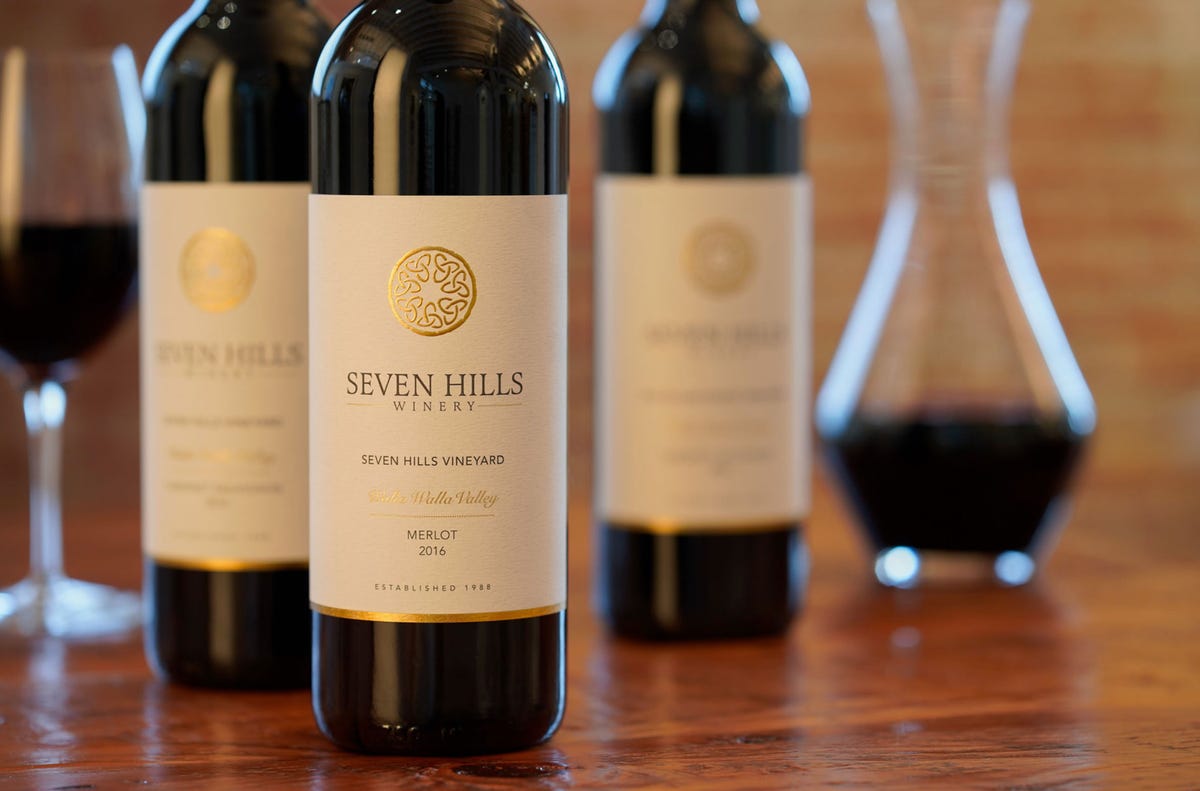
Keep some value-driven wine regions such as Portugal, Spain and Washington state in your back pocket.
Among wine pros, certain regions are well known for keeping quality up and prices down, such as the Iberian peninsula. “Portugal is huge for that,” says Palmer. “Vinho Verde is such an approachable style of wine and you can find it easily for under $15.” Spain also has some great finds: “You can find some really good Tempranillo-based blends that aren’t necessarily Rioja. You can find some good Garnacha-based blends as well,” she says. Spain also offers a less expensive alternative to Champagne. “Cava is just a good, traditional-method sparkling wine that you can frequently get for under $25.”
Read more: Best Wine Apps to Help You Pick a Perfect Bottle
Stateside, Washington state wines, red and whites both, are gaining traction for their value, according to Palmer. And if you love Napa Cab but hate the sticker shock, “Paso Robles is a great place for Cab,” says Palmer. “You can still get the richness, the fullness, and all of the layers of flavor that you could get from Napa and Sonoma, but at a more value-driven price point.” These are US regions that are distributing widely enough that at least a few should land in your local grocery store.
Also, consider South America. “Argentina and Chile are also great places to find value,” says Palmer. “You can find incredible Malbec for under 20 bucks — a grocery store hero — and you can find really good Sauvignon Blanc, especially from Chile, and they deliver great value.”
4. Most New Zealand Sauvignon blanc is a safe bet
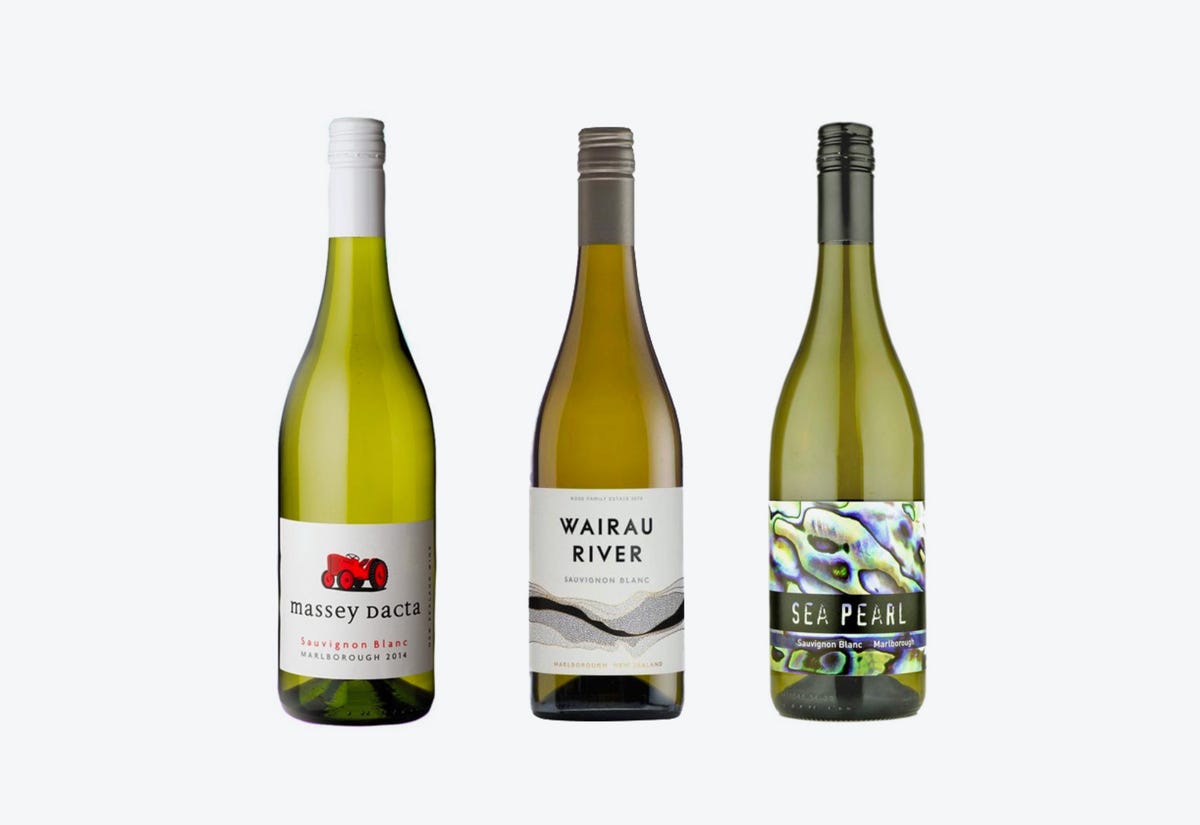
Every supermarket that carries wine should have at least a few New Zealand Sauvignon blancs to choose from.
Speaking of Sauvignon blanc, if you haven’t already hopped on the New Zealand Sauvignon blanc bandwagon, hop on. If you’re already there, stay on. It’s one of the most popular wine styles sold in the US, grocery stores and bottle shops both, and for good reason. “It’s a safe bet,” says Palmer. “It’s pretty straightforward. I know what I’m getting when I pick up a $15 bottle, and you can get all of the great fruity, grassy aromas that you expect.”
5. Don’t be afraid to take a chance
On the opposite score, however, there are so many grapes worldwide, and we are collectively drinking so few of them, and you might find a great deal if you’re willing to try something new. Even the largest grocery retailers have some deep cuts in their selection. “I have bottles at my shop, where people are like, ‘OK, why is this wine $12? I’ve never heard of this before,'” says Palmer. “I think it’s a low-risk, high-reward situation,” she says. “People should venture out a little bit and try something different, like a Picpoul, or a Bonarda.” Plus, when you find something unusual and love it, you get to play the tastemaker among your friends or family.
The same goes for countries or states you maybe didn’t know made wine. Uruguay, for example, has started to export more and more wine to the US in the past 10 years, and there are killer, Tannat-based reds and refreshing Albariños available for less than $15. Look for them tucked among the more famous South American wines.
6. Two big names to look for: Louis Jadot and Mary Taylor
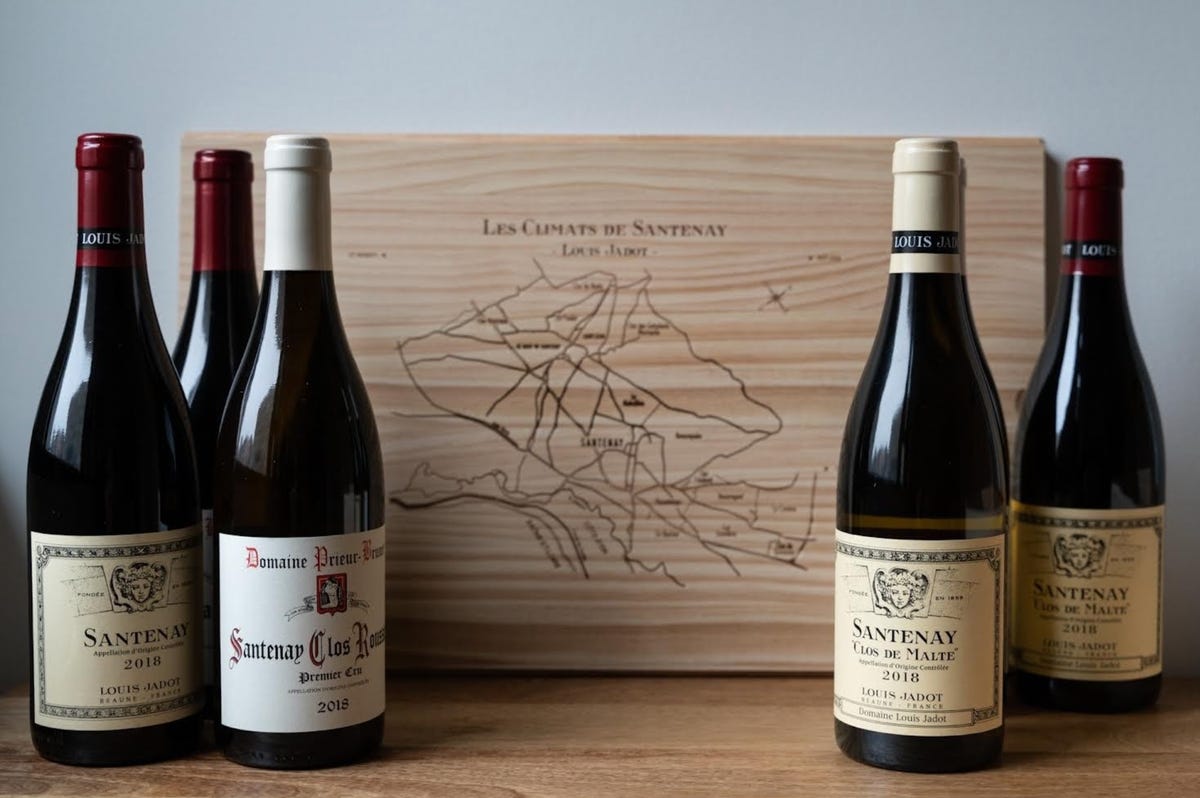
Louis Jadot’s signature old-world labels should be easy to spot on a grocery store shelf.
Louis Jadot wines have a French, classic-looking label you can find in many large retailers, but it’s not quite the same as the mass-market brands you should be avoiding, and that has to do with what’s called the negociant system. “Negociants such as Louis Jadot buy grapes and make wine, so they are not a grower, necessarily,” says Palmer. “It’s a class of producer that allows people to enter the market without having vineyard land,” she says, a much more common practice in winemaking than people realize. Not needing to own real estate is one way for winemakers to keep their costs down, and pass savings to the consumer.
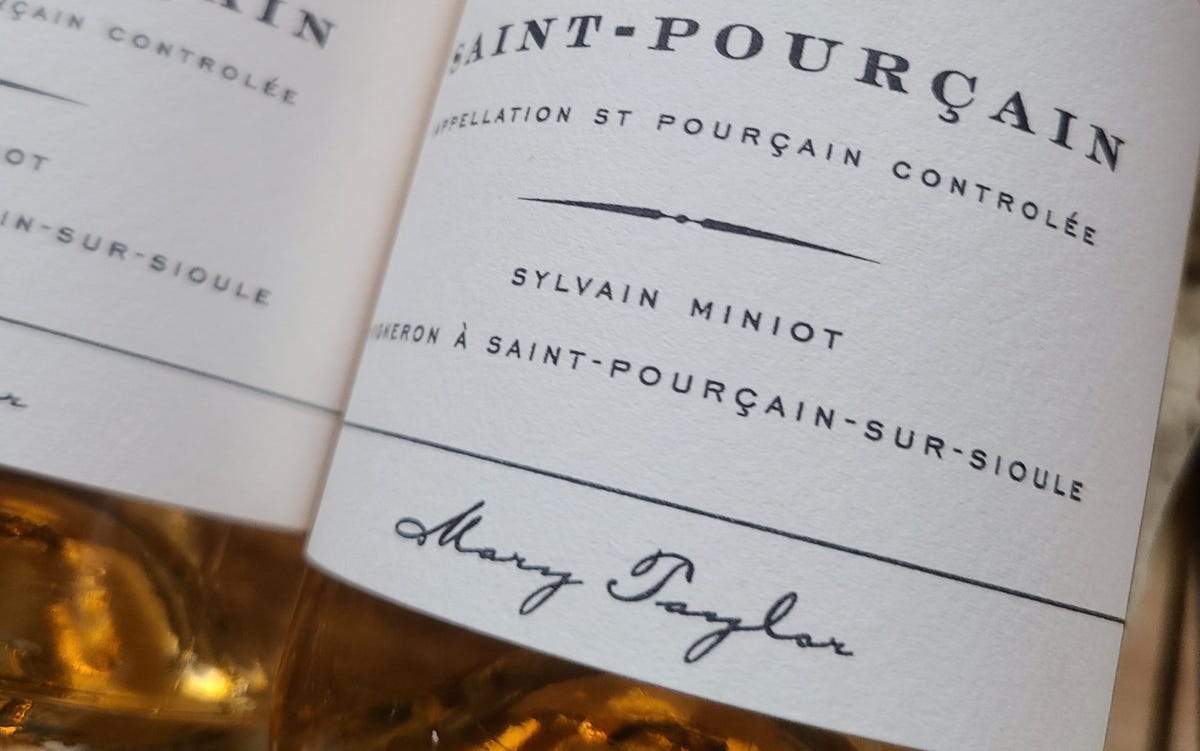
Mary Taylor wines can be found easily and punch above their price.
Similarly, Mary Taylor’s line of wines, available in many retailers, is a hand-picked collection of European wines that offer great value. “Her wines are so accessible, and she does a great job of highlighting producers that are using some relatively unknown grape varieties,” says Palmer, another vote for unfamiliar grapes. “The price is crazy, because they’re all under $20, and the brand exposes consumers to a region that they would have never tried wine from.”




















+ There are no comments
Add yours